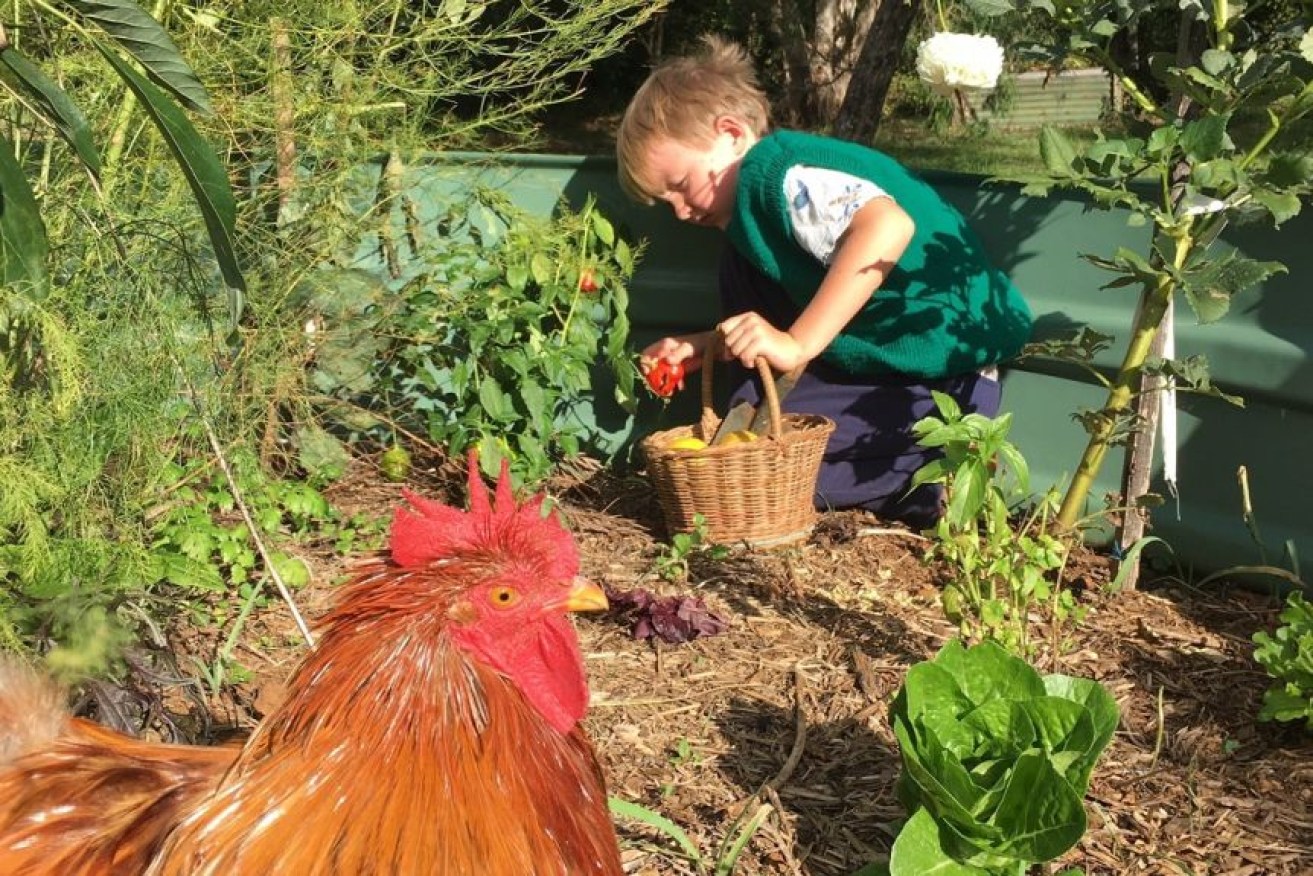Coronavirus prompts regional migration trend as people seek simpler life

The coronavirus pandemic has prompted many people to question how and where they want to live. Photo: ABC
If COVID-19 has spawned in you a desire to grow veggies and raise chooks, you might be among a demographic cohort tipped to create a wave of post-pandemic migration.
The Real Estate Institute of New South Wales is expecting regional areas to do well in the long term as a result of the pandemic.
President Leanne Pilkington said she expecting to see a rise in demand for rural and regional properties.
“I think we have all realised now that we can work from home very effectively and we don’t actually need to travel to meetings like we used to,” Ms Pilkington said.
“So that is likely to end up with people thinking, ‘Maybe I don’t need to live in the city’.”
Ms Pilkington said clear data about demographic trends would emerge as COVID-19 restrictions eased, and people felt comfortable travelling to look at real estate.
“I think people are really going to start having different financial conversations moving forward.”

Real estate agent Chris Hayward says people are wanting to get out of the city. Photo: ABC
Northern NSW estate agent Chris Hayward said interest in rural properties had increased since the pandemic began unfolding.
Mr Hayward said he was fielding inquiries from people in metropolitan areas, including Sydney and the Gold Coast, but also from people in regional centres.
“People are wanting to get out of large communities, that’s my feeling,” Mr Hayward said.
Mr Hayward said rural properties that had been sitting on the market for a while were starting to shift.
“I’m calling it, ‘Back to basics’,” he said.
“There will be positives out of this and I think that is one of them; people wanting to get back to a simpler lifestyle.”
Other northern agents have reported inquiries from buyers as far afield as Melbourne.
Post-pandemic planning
Regional and urban planner Bette O’Brien said governments would need to invest in regional areas to make the most of a post-pandemic migration.
Dr O’Brien said a new wave of tree and sea changers could boost regional economies, but more would need to be done to attract younger, working demographics.
“The best outcome for this, in terms of the economy of the regions, would be for all age groups to start moving so you’re having young families who still need to purchase a home, things that are actually going to stimulate the economy a lot,” she said.
Victoria (Torie) Resch is still unpacking boxes at her new house at Clunes, east of Lismore.

Torie Resch is grateful to be living in regional NSW during the pandemic.Photo: ABC
Ms Resch decided to sell her house in Kensington in Sydney to be closer to her first grandchild, and has been counting her blessings to have left before the coronavirus lockdown.
“I would be glad I moved with or without the pandemic, but it has been just wonderful to be up here during it – it’s just not as restrictive,” she said.
Ms Resch said to her mind, regional areas provided a sanctuary and safety from the pandemic.
“For one thing, there are fewer people,” she said.
Back to the land, again
Cultural studies researcher Rob Garbutt said when people fled to the country in significant numbers in the 1970s they were rejecting the values of society.
They were turning their backs on the Vietnam War, the nuclear policy of mutually assured destruction, and embraced a new awareness of environmentalism.
“The city was seen as the embodiment of the ills of society, so there was an impetus to go to the land to be more independent of the social systems around them and to think differently,” Dr Garbutt said.
He said parallels could be drawn between the pandemic and the fears that helped fuel the back-to-land movement of the 1970s.
Whatever the impetus, Dr Garbutt said the impacts on rural communities could be similar.
“Maybe it’s not a large percentage of people for society as a whole, but for a rural area it’s quite significant,” he said.
“You don’t need too many people to make a visible change in the way our communities work.”
Relaxing on the wide verandah of her new home, Ms Resch said the move had sparked a bit of envy in her city friends, who could not believe she bought 10 acres for less than half the sale price of her Sydney house.
“It’s just fabulous – I’ve got rainforest and a spring-fed creek and I keep finding treasures like a fig tree and a mulberry tree,” she said.
“It feels like a haven, it truly does.”
–ABC








